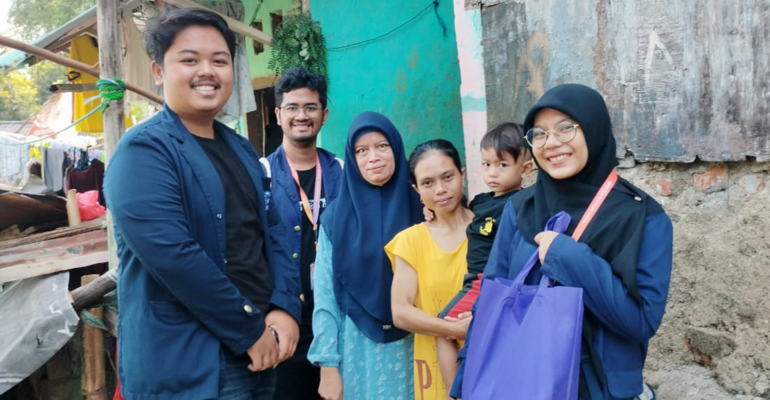Students of KKNT Innovation at IPB University Hold a Nutritional Intake Program in Batutulis Village

IPB University students who are currently running a Innovation Real Thematic Work Lecture (KKNT) held a ‘Nutritional Intake Provision (PASAGI)’ program in Batutulis Village, South Bogor District, Bogor City, West Java (23/7).
This program is implemented to reduce the rate of stunting in children in the area by ensuring they get adequate and balanced nutrition needed. This activity also involves education for parents about the importance of balanced nutrition and how to provide nutritious food.
According to Khalif Alfikri Waskita, the program’s Leader and Executive, this activity is designed with the aim of helping to reduce the rate of stunting events in children in the Batutulis area through proper and sustainable nutritional interventions.
“We want to ensure that children in Batutulis Village get enough nutrition for their growth and development,” said Khalif.
This method of activity involves the provision and distribution of nutritious additional food for children who are identified as stunting. In addition, students of KKNT also provide posters that contain ways to prevent stunting and nutritious types of food.
“By providing nutritious additional food and relevant information, we hope to help families in providing proper nutrition for their children,” Khalif added.
Idrus, the Chief of Batutulis Village, gave appreciation for the initiative of IPB University’s KKNT students in organising this program. “This program is very beneficial to improve the health of children in our area. The education provided also helps parents gain understanding of the importance of balanced nutrition for their children,” he said.
The Chief of the Batutulis Community Section (Kasi), Yudhi, also expressed his hope that this program can be sustainable. “We hope that this program can continue to run and more children will get the benefits,” he said.
In addition, Khalif also emphasised the importance of sustainable nutritional interventions to achieve optimal results in reducing stunting rates. “We believe that through sustainable nutritional interventions and proper education, we can help children grow up healthy and reduce stunting rates in this region,” he said.
With this program, the team of KKNT Innovation at IPB University hopes that the number of stunting in Batutulis Village can decrease and parents’ knowledge about the importance of balanced nutrition for children can increase. “This Nutritional Intake Program is one of the efforts of IPB University students in making a real contribution to the community, especially in the field of child health and nutrition,” concluded Khalif. (*/Rz) (IAAS/IAN)



